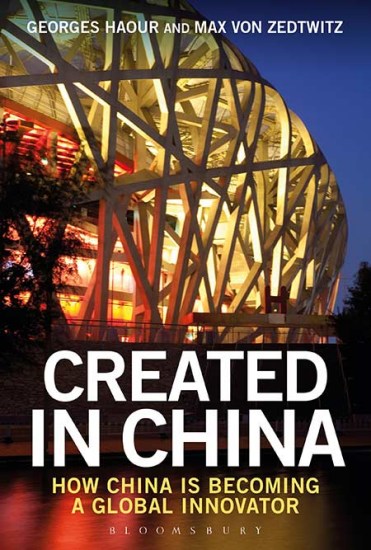
"There is definitely a race going on, and I don't think the West has actually caught up with the severity of that race. China is opening up a new international front in the area of innovation. Because people matter so much in the race, the more people you have, the better you are at it."
Von Zedtwitz believes one of the cutting-edge areas could be in finding a cure for cancer.
"Cancer is a big issue in China because of fears of the impact of the environment on people's health. Because of the size of the country's population, many more people are going to be dying of cancer in China than anywhere else.
"There are also going to be a lot of resources devoted in China to diseases that affect older people, such as Alzheimer's, Parkinson's disease and cardiovascular illnesses, because China's population is aging fast. I think medical technology will be a cutting-edge area for China."
Von Zedtwitz says it would be wrong to expect instant breakthroughs since the lead time for scientific development can often take decades.
He cites Tu Youyou, the Chinese pharmacist who was jointly awarded the Nobel Prize in physiology and medicine last year for developing the anti-malarial drug artemisinin. She began to work in this area in the late 1960s, but the drug only became available in the middle of the last decade, eventually saving millions of lives.
"A breakthrough discovery generally takes about 30 years, certainly in terms of bringing it to the market. So what we are doing now in terms of research and development might not have any impact until 2046," he says.
Von Zedtwitz, whose parents were originally from Germany, was born in Switzerland. He studied computer science at ETH Zurich, a leading technological institution, before an early spell in Asia, working at a research institute in Kyoto, Japan in the mid-1990s. He returned to Switzerland for his doctorate from University of St. Gallen and then moved to Harvard as a postdoctoral fellow.
At 29, he became one of the youngest professors at IMD, one of Europe's top business schools.
In 2002, teaching opportunities came up both in California and Beijing, and he chose the latter.
"There were not many people then who could say they had gone and worked in China," he says of his decision.
After Tsinghua, he helped build a global innovation practice at a management consultancy before running Glorad, which has a base at Shanghai's Tongji University.
One area where China arguably has not been as fast as the US is in space exploration. American Alan Shepard went into space in 1961 and it took just eight years for Neil Armstrong to be the first man to walk on the moon. China had its first man in space in 2003, but is not expected to land an astronaut on the moon until 2023.
"I suppose it is like Christopher Columbus sailing to America. After he had done that, it was hard to replicate.
"The purpose of going to the moon now is not the achievement itself but the commercial aspects of space exploration. It is not about planting a flag but about having permanently manned stations on the moon."
Many believe that China is likely to be the first to land a person on Mars by, according to some estimates, 2060. The return journey may take at least 21 months.
"I wouldn't be surprised if China gets there first," he says.
Despite the massive investment in research and development in China, some argue that creativity here is stifled by hierarchical structures.
Yet, he says, there's emphasis on education, which in turn can drive innovation.
"And, that is where China's advantage currently lies."


















































